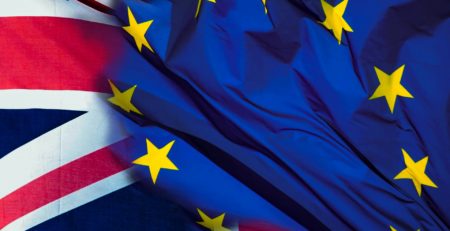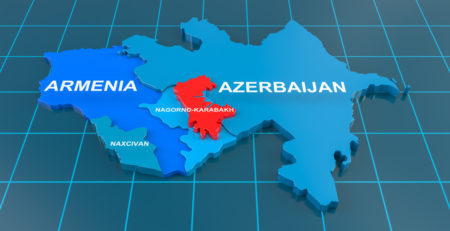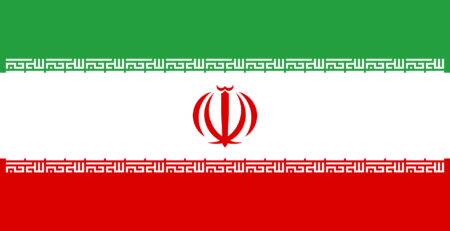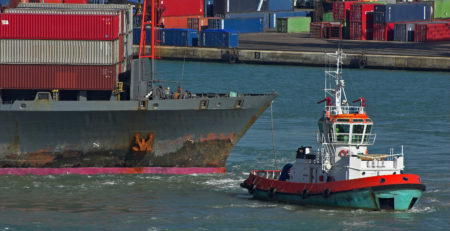What happens after Brexit? A new EU-UK economic partnership
As the debate rages on about whether the UK Government will manage to have its exit deal approved after the General election, the debate about the future relationship has been somewhat sidestepped. In an increasingly changing world where trade and foreign investment work as a political power tools, that may turn out to the most important ingredient for the success of both the EU and the UK in the competition for global influence.
Political Declaration on the Economic Partnership
So far, the future relationship is dealt in the Political Declaration, which is non-binding and is mostly a platform for future negotiation. On the future Economic Partnership, some broad principles are stated but even those may change. This means that a lot of work remains to be done.
The declaration commits to an ambitious trading and customs arrangements for goods, on the basis of a free trade agreement. However, there is no mention of frictionless trade for goods. The UK will leave the Common fisheries policy.
For services, the declaration sets the bar at a liberalisation beyond WTO rules but little more. Financial services will be treated as a third country, digital trade will be allowed dependent on data flows continuing and transport services will be dealt in separate agreements. Intellectual property will go beyond WTO rules, but geographic denominations will be renegotiated. There is a basis for cooperation on energy infrastructure, Euratom and carbon-pricing. On public procurement the UK and EU will go beyond WTO rules but no clear indications so far of what the terms are.
Finally, on the politically charged issue of labour mobility the political declaration defines it will be standard for service provision and there will be visa-free travel for short periods and specific arrangements for specific workers (researchers, etc).
What type of deal in the future?
The Political Declaration leaves ample room for negotiation. At this stage though, it looks like it is pointing to a Free trade Agreement. Both a Free Trade (FTA) agreement and a Customs Union (CU) provide tariff-free trade between the signatories. The difference lies in the tariffs applied to other countries. In an FTA the external tariffs may be different for the signatories, while in a CU they are the same. An FTA would allow for zero tariffs between EU and UK and would permit the UK to enter other free trade agreements independently. However, crucially, it would be far from making trade frictionless as it would require border controls to check the provenance of products. Adding the single market to a CU would mean the UK would have to accept free movement (which is politically difficult) but would allow for the current degree of financial market integration, which represents 40% of UK trade. This would amount to joining the European Economic Area, which means that the UK would be under EU jurisdiction de facto, with no opportunity to influence the rules, which again a hard sell in the UK.
The UK Government estimates the impact on GDP would be close to 5% for the FTA agreement, as it brings little more than trading under WTO rules, and just over 2% for an EEA solution. The Political declaration suggests that there is no support for any solution beyond but an FTA agreement, with some clever technical solutions on customs to reduce friction. This may be costly for both sides.
The regulatory debate
This may turn out to become a very thorny issue in the future negotiations about an economic partnership. Where the British Government previously committed to aligning with EU’s regulatory practises, the bar is now set lower, as the UK commits to level-playing fields remaining in accordance with standards set at the end of the transition period. This solution appears to be compatible with an FTA agreement but less so with a CU.
The regulatory issue is an important political one for the current conservative Government. The UK is consistently ranked in the top of economic freedom indicators. For instance, in the latest Heritage foundation Economic Freedom indicator, the UK ranked 7th globally and was the second highest EU country. In contrast, France ranked 70th globally, and was the third lowest ranked country in the EU. This reflects very different views of economic governance that have influenced the UK’s position within the EU and will not doubt remain a source of contend in future negotiations.
But this could limit the scope of the economic partnership, as the EU has always feared that the UK would engage in a race to the bottom in order to gain a competitive advantage over the EU. When announcing the deal, EU negotiator Michel Barnier said “The precise nature of commitments should be commensurate with the scope and depth of the future relationship and the economic connectedness of the Parties.” This basically means that the closer the UK aligns on regulatory issues the closer the future economic agreement will be.
Both the EU and the UK will lose
There are undoubtedly some advantages to the divorce that both sides like to underline. On the EU front, there is a sentiment that the UK has worked as a break in advancing some aspects of integration and regulation. On the UK side, there is a sense that the country will benefit from being freer to engage with other regions and may forego regulatory burdens it feels are excessive.
But those advantages come at a cost for both the EU and the UK, as the global power of influence of two separate regions will likely add up to less than the combination of both.
The EU is about to lose a partner that pushes for more economic freedom. A partner that is home to the largest and deepest financial market in Europe, which is unlikely to be replaced by any other marketplace in Europe to the same standards. The UK has also traditionally been an important link between Continental Europe and the US, which is particularly important as the US, even before Trump’s Presidency, has started turning inwards. This transatlantic link will be particularly missed by countries such as Portugal, that have historically created bonds away from the centre of Europe.
But the UK also has much lose. Firstly, even with some form of economic partnership, the UK loses automatic access to the largest internal market in goods and services. The end of free movement may feel like the UK will take back control and only accept the very best, but it will have important implications for scientific research and for services, ranging from higher education to the financial sector and the healthcare and services to households sectors where the manpower from Europe adds significant value. Also, though the UK may become free to negotiate free trade agreements with other regions, its power will become much diminished without the full weight of the internal market behind it.
Finally, and perhaps more worryingly, this separation risks undermining Europe’s economic and political power. As the US shies away for the rest of the world and China is trying to pick up the torch in foreign direct investment, trade and even within global institutions of economic governance such as the WTO, the UK is splitting-up from the EU at the worst possible time. It will take considerable patience and humility on both sides to negotiate a future economic partnership that limits the damage to Europe’s soft power.
Two areas for future cooperation
The are many areas for economic cooperation in the future. Here we list two that combine economic profit with the capacity to raise Europe’s global influence:
First, in digitalisation and robotics the EU is a clear laggard, relative to the US, China, and the Asian region. It will take considerable effort and cooperation between the UK and the EU to attempt to close the gap. Not only funds are necessary but also research and expertise. The UK is a leader in financial digitalisation and technology (fintech) and that knowledge can be expanded to other areas with the contribution from researchers and entrepreneurs in both regions and public and private funding. The EU multi-annual financial framework can provide significant public funds that can be leveraged by private funding, particularly from the UK, which has one of the deepest and largest financial sectors in Europe.
Second, the cooperation on foreign direct investment is fundamental. One of the economic reasons of Brexiteers for breaking with the EU was the ability to negotiate new agreements with other regions and countries. However, strategic coordination with the EU, particularly on FDI is fundamental to preserve Europe’s role, for instance in emerging African economies, to ensure that all European investments abroad have the same level of corporate and public governance principles and practises, and there is no race to the bottom on our core values. This is also an opportunity to boost the case for sustainable growth and environmental protection. There is an opportunity for the EU, together with the UK, becoming the leading investors in “Green” sustainable development.
Brexit is, at least in the short term, expected to have a negative net effect in both economies. The future economic partnership should attempt to minimise the loss and leverage on the strengths of both the EU and the UK.
References:
Institute for Government (2019). “Brexit deal: Political Declaration on future UK-EU relationship”, October 2019. https://www.instituteforgovernment.org.uk/explainers/brexit-deal-political-declaration
Miller, T., Kim, A. B., & Roberts, J. M. 2019 Index of Economic Freedom. Heritage Foundation. https://www.heritage.org/index/pdf/2019/book/methodology.pdf
Winters, Alan (2018). “What are the Options for the UK’s Trading Relationship with the EU after Brexit?” The UK in a Changing EU. Economic and Social Research Council (ESRC). Kings College London. https://ukandeu.ac.uk/explainers/what-are-the-options-for-the-uks-trading-relationship-with-the-eu-after-brexit/












